Gardeners Shepherds bush
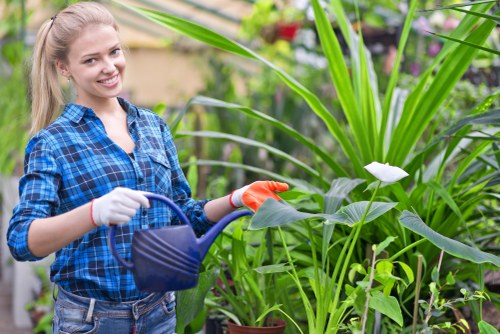
Introduction to Gardeners Shepherds Bush
Gardeners in Shepherds Bush have a unique relationship with their local environment. Nestled in the vibrant heart of London, Shepherds Bush offers a blend of urban living and green spaces that cater to both amateur and professional gardeners. Understanding the specific conditions and resources available in Shepherds Bush can help gardeners create thriving gardens despite the urban setting.
The area's climate, soil type, and available community resources play a significant role in shaping gardening practices. Whether you're looking to cultivate a balcony garden, a community plot, or a small backyard, Shepherds Bush provides ample opportunities and challenges for gardeners.
In this article, we will explore the various aspects that make gardening in Shepherds Bush both rewarding and feasible. From selecting the right plants to utilizing local gardening clubs, you'll find a wealth of information to enhance your gardening experience.
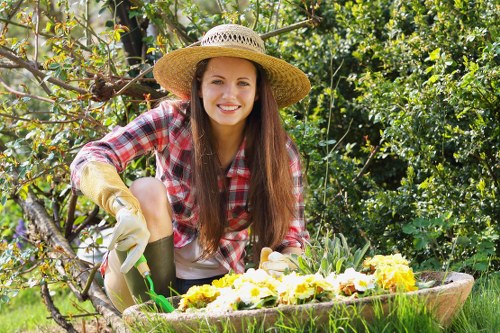
Climate and Weather in Shepherds Bush
Shepherds Bush enjoys a temperate maritime climate, characterized by mild winters and cool summers. This climate is generally favorable for a wide range of plants, allowing gardeners to experiment with both hardy and more delicate species. However, it's essential to be aware of the area's weather patterns to make informed decisions about planting and maintenance.
Rainfall is fairly evenly distributed throughout the year, but occasional heavy downpours can lead to waterlogging. Gardeners should consider proper drainage solutions to prevent root rot and other moisture-related issues. Additionally, the wind exposure in urban areas can affect plant growth, so selecting wind-resistant plants or providing windbreaks can be beneficial.
Understanding the microclimates within Shepherds Bush, such as areas that receive more sunlight or are shaded by buildings, can help in planning garden layouts. Positioning plants according to their light requirements ensures healthier growth and better yields.
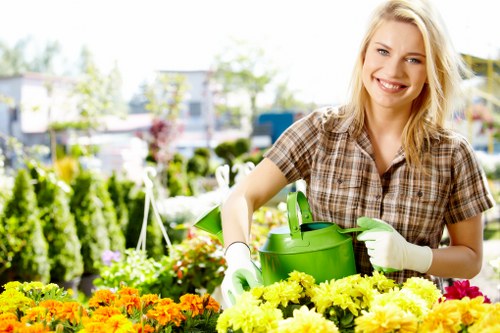
Soil Composition and Preparation
The soil in Shepherds Bush varies, but many urban gardens feature clay or sandy loam soils. Clay soils retain moisture but can become compacted, making it harder for roots to penetrate. Sandy loam, on the other hand, drains well but may require amendments to increase nutrient retention.
Before planting, it's crucial to test your soil's pH and nutrient levels. Most vegetables and flowers prefer a slightly acidic to neutral pH range. Adding organic matter, such as compost or well-rotted manure, can improve soil structure, fertility, and microbial activity.
Raised beds are a popular solution in Shepherds Bush, offering better control over soil quality and drainage. They also warm up faster in the spring, extending the growing season. When building raised beds, ensure they are made from safe, untreated materials to avoid contamination of the soil.
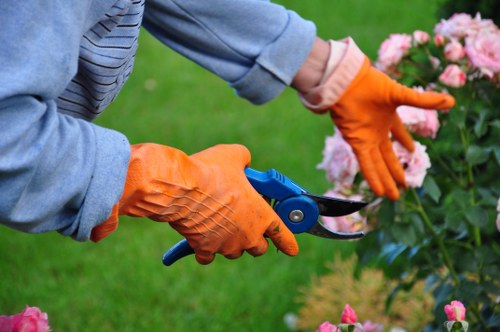
Choosing the Right Plants
Selecting plants that thrive in Shepherds Bush's climate and soil conditions is essential for a successful garden. Consider native and resilient varieties that can withstand urban challenges such as pollution and limited space.
Vegetables like tomatoes, lettuces, and beans perform well in raised beds and containers, providing ample produce for home use. Flowers such as marigolds, petunias, and geraniums add color and attract pollinators, enhancing the garden's ecological balance.
Herbs like basil, thyme, and rosemary are not only useful in the kitchen but also adaptable to urban gardening environments. Their compact growth habits make them suitable for small spaces, balconies, and window boxes.
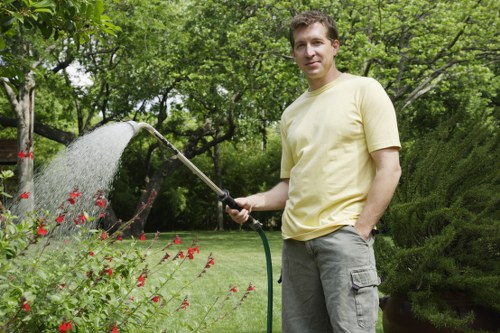
Utilizing Community Resources
Shepherds Bush boasts a strong sense of community among its gardeners. Local gardening clubs and community gardens offer opportunities to share knowledge, plants, and resources. Joining these groups can provide valuable support and inspiration for both novice and experienced gardeners.
Workshops and events organized by community centers and nurseries in Shepherds Bush cover topics ranging from organic gardening techniques to landscape design. Participating in these activities can enhance your gardening skills and connect you with like-minded individuals.
Additionally, local plant exchanges and seed swaps are popular in Shepherds Bush, allowing gardeners to diversify their plant collections without significant expense. These exchanges promote sustainability and community bonding, making gardening a collaborative and enjoyable endeavor.
Gardening Tips for Success
- Start small: Begin with a manageable garden size to avoid feeling overwhelmed.
- Choose the right location: Ensure your garden receives adequate sunlight based on plant requirements.
- Regular maintenance: Consistent watering, weeding, and pruning keep plants healthy.
- Use quality soil: Invest in good soil or improve existing soil with organic matter.
- Rotate crops: Prevent soil depletion and reduce pest buildup by rotating plant families.
Overcoming Urban Gardening Challenges
Urban gardening in Shepherds Bush comes with its own set of challenges, such as limited space, pollution, and access to natural resources. However, with the right strategies, these obstacles can be effectively managed.
Vertical gardening is an excellent solution for space constraints. Utilizing trellises, stackable planters, and hanging baskets allows for more plants in less space. This method not only maximizes area but also adds visual interest to the garden.
Protecting plants from pollution involves choosing plants that can tolerate high levels of air contaminants. Regular washing of foliage and creating barriers such as fences or hedges can also help mitigate the effects of urban pollution on your garden.
Sustainable Gardening Practices
Adopting sustainable practices in your Shepherds Bush garden contributes to environmental conservation and personal well-being. Composting kitchen scraps and garden waste reduces landfill usage and enriches your soil naturally.
Rainwater harvesting systems can provide an eco-friendly source of water for your garden, lowering water bills and conserving natural resources. Utilizing greywater from household activities, with proper filtration, is another sustainable approach.
Choosing native plants reduces the need for excessive watering and chemical fertilizers, as these plants are naturally adapted to the local environment. Additionally, encouraging biodiversity by planting a variety of species supports pollinators and beneficial insects.
10-15 Closest Areas to Shepherds Bush
- Hammersmith: Just west of Shepherds Bush, known for its riverside parks and vibrant arts scene.
- White City: Adjacent to Shepherds Bush, home to the Westfield Shopping Centre and rich in historical sites.
- Chiswick: A short distance away, offering beautiful waterways and upscale residential areas.
- Notting Hill: Famous for its annual carnival and colorful houses, located to the southeast.
- East Acton East of Shepherds Bush, featuring community gardens and local markets.
- Queens Park: Known for its large park and diverse community, situated to the northeast.
- Park Royal: An industrial area nearby with increasing green initiatives and urban gardens.
- West Ealing: Close by, offering a mix of residential spaces and small gardening spots.
- Feltham: A bit further west, with community gardens and access to the River Thames.
- Kensington: To the southeast, renowned for its expansive gardens and green spaces.
- Chalk Farm: North of Shepherds Bush, boasting local green areas and community involvement in gardening.
- Maida Vale: Southwest of Shepherds Bush, with private gardens and terrace plants.
- Turnham Green: Nearby, featuring public parks ideal for small-scale gardening projects.
- South Acton: Close by, with access to shared gardening spaces and educational resources.
- East Sheen: A bit further east, known for its picturesque gardens and horticultural societies.
Conclusion
Gardening in Shepherds Bush is a fulfilling endeavor that blends the joys of nature with the conveniences of urban living. By understanding the local climate, soil conditions, and community resources, gardeners can cultivate thriving spaces that enhance both their lives and the environment around them.
Embracing sustainable practices and overcoming urban challenges with creative solutions allows for a resilient and beautiful garden. Whether you're a seasoned gardener or just starting, Shepherds Bush offers the perfect backdrop for your green aspirations.
Frequently Asked Questions
1. What are the best plants for small gardens in Shepherds Bush?
Compact plants like herbs (basil, thyme), dwarf vegetables (cherry tomatoes, bush beans), and flowering plants (marigolds, geraniums) are ideal for small gardens in Shepherds Bush.
2. How can I protect my garden from urban pollution?
Use pollution-tolerant plants, create barriers like fences or hedges, regularly clean plant leaves, and consider using air-purifying plants to mitigate the effects of urban pollution.
3. Are there community gardens available in Shepherds Bush?
Yes, Shepherds Bush has several community gardens where local gardeners can collaborate, share resources, and cultivate plants together. Checking with local community centers or gardening clubs can provide more information.
4. What resources are available for new gardeners in Shepherds Bush?
New gardeners can access resources through local gardening clubs, workshops hosted by community centers, nurseries offering advice, and online forums dedicated to urban gardening in Shepherds Bush.
5. How can I make my garden more sustainable?
Implement composting, use rainwater harvesting systems, choose native and resilient plants, practice crop rotation, and encourage biodiversity by planting a variety of species to make your garden more sustainable.


